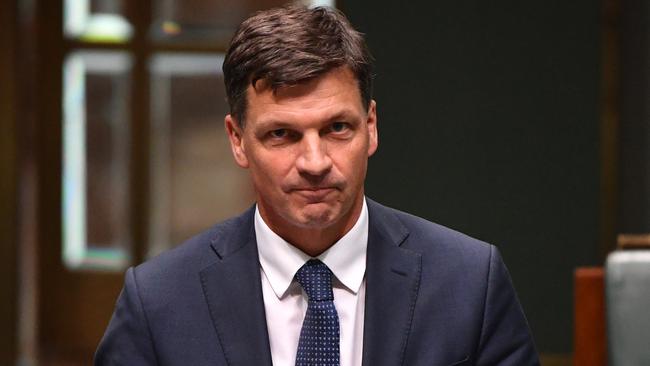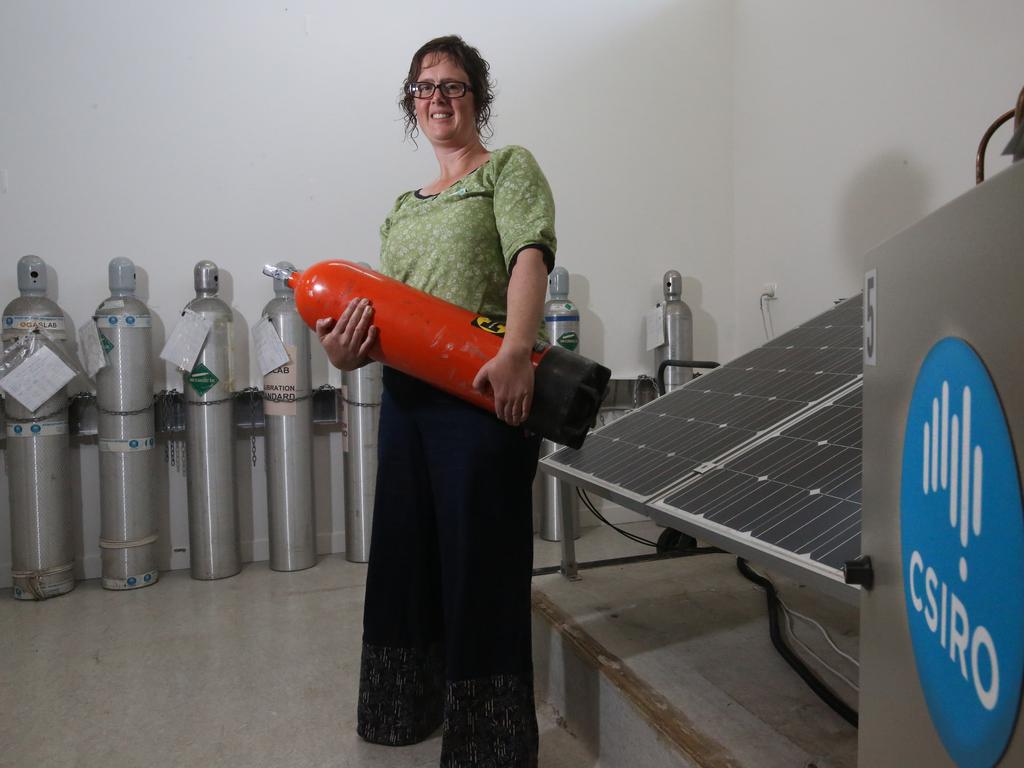Coronavirus lockdown triggers an emissions crash
Australia’s greenhouse gas emissions have fallen to their lowest levels since 1998.

Australia’s greenhouse gas emissions have fallen to their lowest levels since 1998, with COVID-19 restrictions decreasing carbon dioxide levels by 10 million tonnes between April and June.
The pandemic-fuelled economic slowdown, which has dramatically impacted the transport and aviation sectors, drove a 17.9 per cent drop in emissions from the consumption of liquid fuels in the June quarter.
The emissions plunge also coincided with the July 1 start-date of the Paris Agreement Target accounting period, with the Morrison government aiming to reduce greenhouse gas emissions to 26-28 per cent below 2005 levels by 2030.
The National Greenhouse Gas Inventory update, released by Energy Minister Angus Taylor on Monday, will show in the year to March emissions fell 1.4 per cent to 528.7m tonnes, which is 14.3 per cent below 2005 levels.
Excluding emissions generated by exports, emissions have fallen 32 per cent on 2005 levels.
Mr Taylor — who announced in June that Australia had beat its Kyoto-era targets by up to 430 million tonnes — said the unsustainable restrictions on Australians’ livelihoods and freedom to travel had “substantially reduced emissions”. “With the impacts of COVID-19 restrictions being felt across the economy, emissions have reduced as expected,” Mr Taylor said.
While Opposition leader Anthony Albanese has committed to a policy of net-zero emissions by 2050, Labor MPs remain divided over whether to back the government’s medium-term Paris Agreement target or adopt a more ambitious position on climate change.
The COVID-19 shutdown of international borders and restrictions on interstate travel significantly decreased transport emissions, with falls in the consumption of petrol (26.7 per cent) and jet fuel (79 per cent).
Based on preliminary June quarter estimates, emissions were projected to be as low as 518 million tonnes, reflecting the lowest levels in 22 years and the continuing decarbonisation of Australia’s domestic economy.
In its quarterly update report, the Department of Energy and Resources said Australia’s emissions had declined 16.7 per cent “since the peak in the year to June 2007”.
“The year to March emissions were 3.1 per cent below emissions for the year to June in 2000 and 14.3 per cent below emissions in the year to June 2005,” the report said. “In the year to March 2020, emissions per capita and the emissions intensity of the economy were at their lowest levels in 30 years.
“Emissions per capita were lower than 1990 by 42.9 per cent while the emissions intensity of the economy was 64.2 per cent lower than in 1990.”
Emissions from exports rose 1.9 per cent to 38.6 per cent of total emissions off the back of an 11 per cent increase in LNG exports, up to 79 million tonnes in the year to March compared with the same period last year.
The Morrison government’s national technology investment roadmap is expected to be finalised ahead of the October 6 budget, anchoring Australia’s long-term emissions reduction strategy to be released before the UN Climate Change Conference in Glasgow next year.
The road map process, which has been welcomed by Mr Albanese, will outline the government’s energy priorities alongside work on Australia’s gas-led recovery, which has been guided by National COVID-19 Commission special adviser Andrew Liveris.
Electricity emissions continued their long-term structural decline, down 4.2 per cent to March.
The department report said the June quarter estimates reflected the “combined impacts of reductions in emissions from fuel combustion in the electricity sector” and COVID-19 related restrictions on movement.
“Emissions from the combustion of fuels in the generation of electricity are lower by 5.4 per cent. The ongoing transition to renewable generation accounts for most of this trend. Metered demand in June 2020 was only 1.4 per cent lower than June 2019 suggesting the impact of COVID on the electricity sector has been relatively minor.”
The Australian understands while the Morrison government expects the September quarter to reflect lower than usual emissions data, they predicted emissions would increase in line with COVID-19 restrictions being removed. The draft technology investment roadmap released by Mr Taylor in May outlined the government’s strategic approach to future energy sources out to 2050 while meeting emissions reduction targets.
Six key low-carbon technologies, out of 140 considered, will be prioritised by the end of the year with the government understood to be focused on emerging technologies, including hydrogen, carbon capture and storage, sequestration and soil carbon.
Industry Minister Karen Andrews is also preparing a major manufacturing strategy, working in tandem with the technology roadmap and pinpointing the nation’s future manufacturing and energy needs.








To join the conversation, please log in. Don't have an account? Register
Join the conversation, you are commenting as Logout